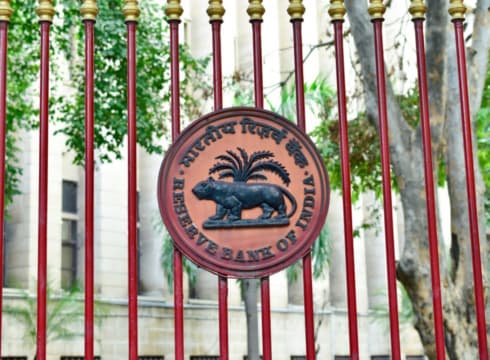The new functionality will allow a customer to create a payment mandate against a merchant by blocking funds in bank account for specific purposes, which can be debited whenever required
The new functionality will significantly enhance the ease of making payments in the ecommerce space and while investing in securities: RBI
The RBI also announced expansion of the scope of BBPS to include all categories of payments and collections, both recurring and non-recurring in nature
Inc42 Daily Brief
Stay Ahead With Daily News & Analysis on India’s Tech & Startup Economy
The Reserve Bank of India (RBI) on Wednesday said that it will introduce a single-block-and-multiple debits functionality in the Unified Payments Interface (UPI).
The new functionality is expected to significantly enhance the ease of making payments in the ecommerce space and while investing in securities, the central bank said.
The functionality will allow a customer to create a payment mandate against a merchant by blocking funds in his/her bank account for specific purposes, which can be debited whenever required, the RBI said in its statement on developmental and regulatory policies.
The central bank will shortly issue separate instructions to the National Payments Corporation of India (NPCI), the umbrella organisation that facilitates UPI payments, in this regard.
UPI currently allows processing of mandates for recurring transactions and single-block-and-single-debit functionality. Over 70 lakh autopay mandates are handled every month through this feature and more than half of the initial public offer (IPO) applications are processed using the block feature of UPI, the RBI said.
However, the central bank has decided to further enhance the features of UPI for improving the ease of making payments.
“This (the new functionality) would be helpful for hotel bookings, purchase of securities in the secondary capital market as also purchase of government securities using the RBI’s Retail Direct scheme, ecommerce transactions, etc,” the statement said. “This will build higher degree of trust in transactions as merchants will be assured of timely payments, while the funds remain in the customer’s account till actual delivery of goods or services.”
With increasing penetration of high-speed internet and smartphones across the country, the digital banking ecosystem in India has grown by leaps and bounds, with UPI playing a major role in this evolution. In September this year, UPI transactions crossed the 11 Lakh Cr mark for the first time. Recently, Finance Minister Nirmala Sitharaman said that UPI would target 1 Bn daily transactions in the next five years.
However, the total number of UPI transactions declined slightly on a monthly basis in November. UPI saw 730 Cr transactions worth INR 11.91 Lakh Cr last month.
Besides the update related to UPI, the RBI also announced expansion of the scope of the Bharat Bill Payment System (BBPS) to include all categories of payments and collections, both recurring and non-recurring in nature.
BBPS is a one-stop destination for making payments of recurring utility bills like electricity, gas, insurance payments, and more.
Some categories of payments and collections like professional service fee payments, education fees, tax payments, rent collections, among others, which are not currently possible with BBPS will be covered in the expansion.
As per the central bank, expanding the scope of BBPS will make the platform accessible to a wider set of individuals and businesses who can benefit from the transparent and uniform payments experience, faster access to funds and improved efficiency.
The central bank will also issue separate guidelines to NPCI Bharat BillPay (NBBL) in this regard.
It is pertinent to note that the RBI, through a recent circular, also allowed the BBPS to process cross-border inbound payments to facilitate the payments of utility bills by NRIs.
{{#name}}{{name}}{{/name}}{{^name}}-{{/name}}
{{#description}}{{description}}...{{/description}}{{^description}}-{{/description}}
Note: We at Inc42 take our ethics very seriously. More information about it can be found here.


